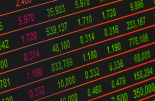State Street: European equities are overhyped
State Street: European equities are overhyped

State Street Global Markets experts discuss whether the positive sentiment for European equities will last and the impact of the US Dolllar on emerging market equities.
Marija Veitmane, Multi-Asset Class Strategist at State Street Global Markets:
'It is encouraging to see the recent efforts of the European Commission to mutualise EU debt, support the regions efforts to fight the virus and prepare for its economic short-fall. In fact, European leaders deserve some applause for their efforts to control the virus, as despite a gradual re-opening, infection rates are falling consistently across European countries. This success helps explain the pick-up in appetite for cyclical sectors, but there is a catch. Positive sentiment for European stocks could suddenly turn if the pace of recovery disappoints, as European stocks have a very small margin for error. They currently have below average margins, which are likely to substantially contract this year. Whilst analysts expect them to rebound next year, the forecasts are consistently downgraded. Given the need for reality to live up to the high expectations, we prefer the quality growth of the US versus the overhyped European equities.'
Ben Luk, Senior Multi-Asset Strategist at State Street Global Markets:
'Headwinds are stacking up for the USD as we approach the second half of 2020, especially with the Federal Reserve pumping liquidity at an unprecedented pace, along with institutional investors actively selling the currency. This is great news for emerging markets, as based on the last 15 years of monthly data between MSCI country indices and USD trade-weighted index, dollar strength led to an underperformance for almost all emerging markets. The reverse also holds for developed market equities that have benefited on the strength of the greenback.'
Chart - The impact of the US Dollar (USD) on emerging market equities.
Source: State Street Global Markets, Bloomberg. Correlation based on the 15 years of monthly data.









